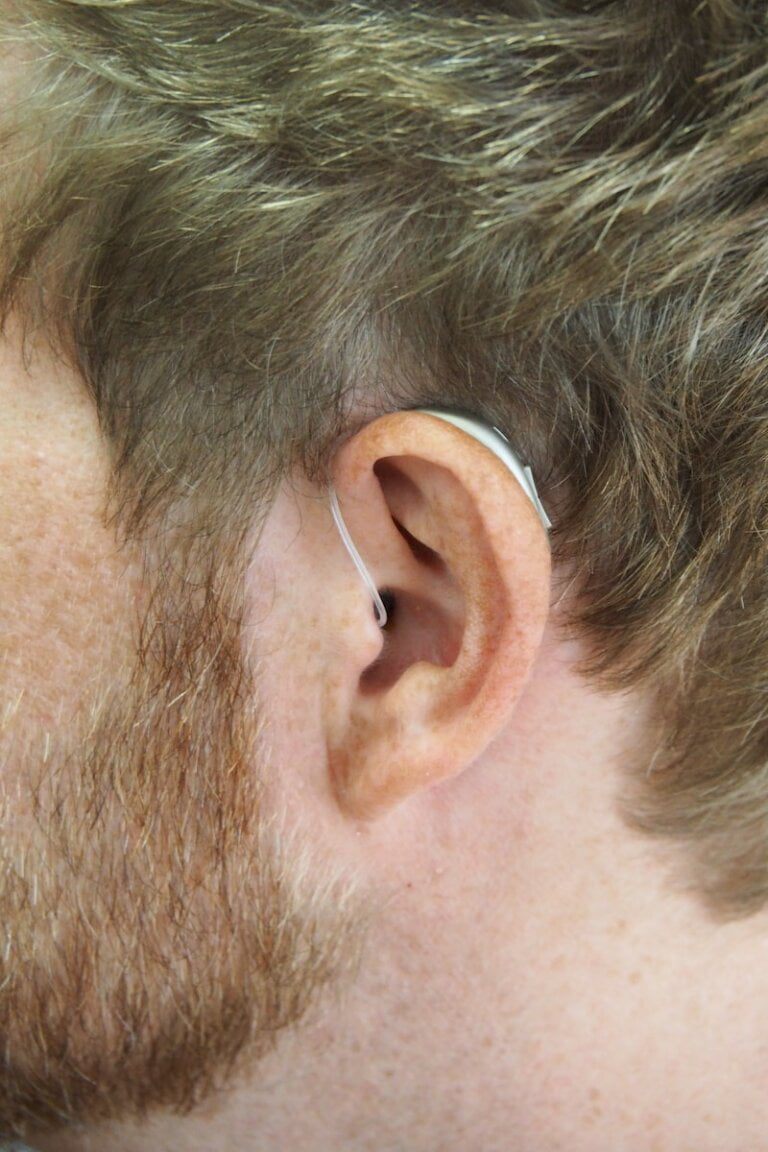Expert Advice: Proven Tips for Optimal Ear Health
Last Updated on 3rd May 2024 by Admin
Taking care of our ears is essential for maintaining good overall health and preventing various ear-related problems. Whether it’s ear infections, hearing loss, or tinnitus, a little extra attention and care can go a long way in ensuring optimal ear health. In this article, we will discuss some expert advice and proven tips that can help you maintain healthy ears.
Understanding the Importance of Ear Health
Our ears play a vital role in our daily lives, allowing us to communicate, enjoy music, and be aware of our surroundings. However, neglecting ear care can lead to various complications. Therefore, it is essential to prioritize ear health to prevent any potential issues and maintain a high quality of life.
There are several reasons why ear health is crucial:
- Communication: Our ears enable us to hear and understand others, making effective communication possible. Maintaining good ear health ensures that we can actively participate in conversations and engage with the world around us.
- Enjoyment of Music: Music is a source of joy and relaxation for many people. By taking care of our ears, we can continue to appreciate the beauty of music without experiencing hearing loss or other auditory problems.
- Awareness of Surroundings: Our ears help us stay alert to potential dangers in our environment, such as approaching vehicles or alarms. Optimal ear health ensures that we can be fully aware of our surroundings and respond appropriately to any potential threats.
By understanding the importance of ear health, we can prioritize its maintenance and take the necessary steps to ensure optimal ear health.
1. Keep Your Ears Clean
Proper ear hygiene is essential for maintaining optimal ear health. While it may be tempting to clean the inside of your ears, it’s crucial to remember that our ears are self-cleaning organs. The ear canal produces cerumen (earwax), which helps trap dust, debris, and bacteria, preventing them from reaching the delicate parts of the ear.
To keep your ears clean, follow these tips:
- Gently clean the outer part of your ears with a soft cloth after bathing or showering. This helps remove any dirt or excess earwax that may have accumulated.
- Avoid using cotton swabs or other objects to clean the inside of your ears, as they can push the earwax deeper into the ear canal, leading to blockages or damage.
- If you experience excessive earwax buildup or discomfort, consult a healthcare professional who can safely remove the earwax or recommend appropriate treatment.
By practicing proper ear hygiene, you can ensure that your ears remain clean and free from unnecessary complications.
2. Protect Your Ears
Exposure to loud noises can cause irreversible damage to your hearing. Whether you are attending a concert, using power tools, or riding a motorcycle, it is essential to protect your ears with earplugs or earmuffs. This simple precaution can significantly reduce the risk of noise-induced hearing loss and preserve your hearing abilities.
Here are some tips for protecting your ears:
- Use earplugs or earmuffs in noisy environments, such as concerts, construction sites, or airports. These devices help reduce the intensity of sound and protect your ears from potential damage.
- If you are unable to avoid loud noises, try to limit your exposure time. Take breaks in quieter areas to give your ears a rest and minimize the risk of prolonged exposure.
- Consider custom-made earplugs if you frequently find yourself in noisy environments. These earplugs are molded to fit your ears perfectly and provide optimal protection.
By taking proactive measures to protect your ears from loud noises, you can prevent hearing loss and maintain optimal ear health.
3. Practice Safe Listening
Listening to music or other audio at high volumes through earphones or headphones can also lead to hearing damage. To prevent this, follow the 60/60 rule – limit your listening time to 60 minutes at 60% volume. Additionally, opt for noise-canceling headphones as they allow you to enjoy audio at lower volumes by blocking external noise.
Here are some additional tips for safe listening:
- Take regular breaks from listening to give your ears time to rest and recover from prolonged exposure to sound.
- Lower the volume of your audio devices to a comfortable level. If others can hear the sound leaking from your headphones, it is a sign that the volume is too high.
- Invest in high-quality headphones that provide clear sound without the need for excessive volume. Poor-quality headphones may require higher volume settings to achieve the desired sound quality, increasing the risk of hearing damage.
By practicing safe listening habits, you can enjoy your favorite music and audio while minimizing the risk of hearing damage.
4. Be Cautious with Water Exposure
Excessive water exposure can lead to ear infections or swimmer’s ear. After swimming or taking a shower, it is crucial to dry your ears thoroughly. Tilt your head to each side, gently pull the earlobe, and use a towel or a hairdryer on the lowest setting to remove any moisture. Avoid inserting cotton swabs into the ear canal as they can push the water further inside and cause more harm than good.
Here are some tips for managing water exposure:
- Use earplugs designed for swimming to prevent water from entering your ears while swimming or engaging in water activities.
- If water does enter your ears, tilt your head to each side and gently pull the earlobe to facilitate drainage. You can also use a towel or a hairdryer on the lowest setting to help evaporate any remaining moisture.
- If you frequently experience swimmer’s ear or have persistent ear discomfort after water exposure, consult a healthcare professional for appropriate diagnosis and treatment.
By being cautious with water exposure and taking the necessary steps to dry your ears properly, you can reduce the risk of ear infections and maintain optimal ear health.
5. Avoid Inserting Foreign Objects
It is essential to resist the temptation of inserting any foreign objects into your ears. This includes cotton swabs, bobby pins, or any other small items that may seem suitable for cleaning purposes. These objects can damage the delicate structures of the ear canal and increase the risk of infections or injuries.
Here’s why you should avoid inserting foreign objects:
- Ear Canal Damage: Inserting objects into the ear canal can cause scratches, cuts, or abrasions, making you more susceptible to infections. The ear canal has a delicate lining that can be easily damaged by sharp or rough objects.
- Earwax Compaction: Cotton swabs may push earwax deeper into the ear canal, leading to earwax impaction. This condition can cause discomfort, hearing loss, and other complications that require medical intervention.
- Injury Risk: Inserting sharp objects like bobby pins not only increases the risk of damaging the ear canal but may also result in unintentional injuries to the eardrum or other sensitive structures of the ear.
If you experience persistent earwax buildup or have concerns about ear cleanliness, consult a healthcare professional who can provide appropriate guidance on safe ear cleaning practices.
By avoiding the insertion of foreign objects, you can protect your ears from potential harm and maintain optimal ear health.
6. Stay Active
Regular exercise promotes good blood circulation, which is vital for maintaining ear health. Engage in activities like walking, swimming, or cycling to improve blood flow to the ears and reduce the risk of developing certain ear conditions.
Here’s how staying active benefits your ear health:
- Improved Blood Circulation: Physical activity increases blood flow throughout the body, including the ears. This enhanced circulation ensures that the ears receive an adequate supply of oxygen and nutrients, promoting their health and functionality.
- Reduced Risk of Ear Infections: Regular exercise boosts the immune system, making it more effective at fighting off infections. By staying active, you can strengthen your body’s defense mechanisms against ear infections.
- Overall Well-being: Exercise not only benefits your ears but also contributes to your overall well-being. It helps alleviate stress, improves mood, and enhances cognitive function, all of which indirectly support optimal ear health.
Incorporate regular physical activity into your routine to reap the numerous health benefits it offers, including improved ear health.
7. Maintain a Healthy Diet
A balanced diet rich in essential nutrients can contribute to overall well-being, including ear health. Include foods that are high in Omega-3 fatty acids, such as fish, nuts, and seeds, as they have anti-inflammatory properties that can benefit the ears. Additionally, incorporate fruits and vegetables rich in vitamins A, C, and E, as they promote good ear health.
Here are some dietary recommendations for optimal ear health:
- Omega-3 Fatty Acids: Consume fatty fish like salmon, sardines, and tuna, as well as plant-based sources like walnuts, flaxseeds, and chia seeds. These foods provide Omega-3 fatty acids, which have been shown to reduce inflammation in the ears and support overall ear health.
- Vitamin-Rich Foods: Include fruits and vegetables such as carrots, sweet potatoes, oranges, strawberries, and spinach in your diet. These foods are rich in vitamins A, C, and E, which are essential for maintaining healthy ears and preventing age-related hearing loss.
By maintaining a healthy diet that includes these ear-healthy nutrients, you can support your overall well-being and optimize your ear health.
8. Avoid Smoking
Smoking not only affects your lungs and cardiovascular system but also poses risks to your ears. It can lead to blood vessel constriction and reduce the flow of vital nutrients to the ears, potentially causing hearing loss and other ear-related problems. Quitting smoking not only benefits your overall health but also significantly improves your ear health.
Here’s why you should avoid smoking for optimal ear health:
- Reduced Blood Flow: Smoking narrows the blood vessels, including those that supply blood to the ears. This reduction in blood flow deprives the ears of essential nutrients and oxygen, increasing the risk of damage and hearing loss.
- Increased Risk of Infections: Smoking weakens the immune system, making you more susceptible to infections, including ear infections. These infections can cause pain, discomfort, and potential damage to the delicate structures of the ear.
- Accelerated Age-Related Hearing Loss: Smoking has been linked to an increased risk of age-related hearing loss. By quitting smoking, you can slow down this progression and preserve your hearing abilities.
If you are a smoker, consider seeking professional help to quit smoking and improve your overall health, including your ear health.
9. Regular Check-ups
Just like any other part of your body, it is essential to have regular check-ups for your ears. Schedule routine visits to an audiologist or an ENT specialist to evaluate your ear health and identify any potential issues early on. Early detection and prompt treatment can help prevent complications and ensure optimal ear health.
Here’s why regular check-ups are important:
- Early Detection of Problems: Regular ear examinations can help identify any underlying issues, such as ear infections, hearing loss, or abnormalities in the ear canal or eardrum. Early detection allows for timely intervention and increases the chances of successful treatment.
- Professional Guidance: Audiologists and ENT specialists can provide valuable guidance on maintaining ear health, including personalized advice based on your specific needs. They can also recommend appropriate measures for protecting your ears in specific environments or situations.
- Peace of Mind: Regular check-ups offer reassurance and peace of mind, knowing that your ears are in good health. They allow you to address any concerns or symptoms promptly, minimizing the impact on your overall well-being.
Conclusion
By following the expert advice and proven tips mentioned in this article, you can take proactive steps towards maintaining optimal ear health. Remember, prevention is always better than cure, so prioritize ear care and incorporate these practices into your daily routine. By doing so, you can enjoy good hearing and prevent the onset of various ear-related problems, ultimately enhancing your overall well-being.
FAQ
1. Why is ear health important?
Ear health is important because our ears play a vital role in communication, enjoyment of music, and awareness of our surroundings. By maintaining good ear health, we can actively participate in conversations, appreciate music without hearing loss, and stay alert to potential dangers.
2. How can I keep my ears clean?
To keep your ears clean, gently clean the outer part of your ears with a soft cloth after bathing or showering. Avoid using cotton swabs or other objects to clean the inside of your ears, as they can push earwax deeper into the ear canal. If you have excessive earwax buildup or discomfort, consult a healthcare professional.
3. How can I protect my ears from loud noises?
You can protect your ears from loud noises by using earplugs or earmuffs in noisy environments. If you are unable to avoid loud noises, try to limit your exposure time and take breaks in quieter areas. Consider custom-made earplugs for optimal protection.
4. How can I practice safe listening?
To practice safe listening, limit your listening time to 60 minutes at 60% volume (the 60/60 rule). Take regular breaks from listening, lower the volume of your audio devices to a comfortable level, and invest in high-quality headphones.







